|
In addition to all of the informative plenary addresses, this year’s Annual Meeting features quite a few sessions highlighting special invited guests. Specific session information will be available in the Program Planner, the online Program Book, and the October RSN. Below you will find information on our special invited guests.
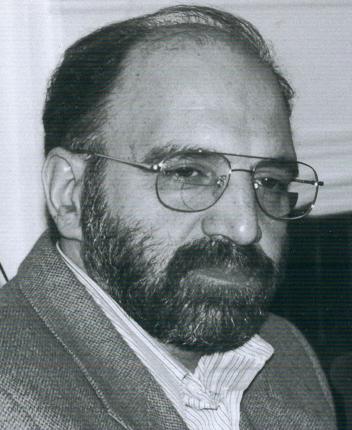 Abdul Karim Soroush is an Iranian thinker, philosopher, reformer, Rumi scholar, and former professor at the University of Tehran. He is a well-known figure in the religious intellectual movement in Iran. After the Revolution, Soroush returned to Iran and published his book Knowledge and Value — the writing of which he had completed in England. He then went to Tehran’s Teacher Training College, where he was appointed director of the newly established Islamic Culture Group. While in Tehran, Soroush established studies in both history and the philosophy of science. During the 1990s, Soroush gradually became more critical of the political role played by the Iranian clergy. The monthly magazine that he cofounded, Kiyan, soon became the most visible forum ever for religious intellectualism. In this magazine, he published his most controversial articles on religious pluralism, hermeneutics, tolerance, and clericalism. The government clamped down on the Kiyan staff in 1998 — as well as many other magazines and newspapers — by the direct order of the supreme leader of the Islamic Republic. Over the next year, Soroush lost his three senior academic appointments, including a deanship. He was forbidden from making public appearances and from publishing new articles. Since 2000, Soroush has lived in the United States and Europe and has taught at Harvard University, Princeton University, and Georgetown University. Abdul Karim Soroush is an Iranian thinker, philosopher, reformer, Rumi scholar, and former professor at the University of Tehran. He is a well-known figure in the religious intellectual movement in Iran. After the Revolution, Soroush returned to Iran and published his book Knowledge and Value — the writing of which he had completed in England. He then went to Tehran’s Teacher Training College, where he was appointed director of the newly established Islamic Culture Group. While in Tehran, Soroush established studies in both history and the philosophy of science. During the 1990s, Soroush gradually became more critical of the political role played by the Iranian clergy. The monthly magazine that he cofounded, Kiyan, soon became the most visible forum ever for religious intellectualism. In this magazine, he published his most controversial articles on religious pluralism, hermeneutics, tolerance, and clericalism. The government clamped down on the Kiyan staff in 1998 — as well as many other magazines and newspapers — by the direct order of the supreme leader of the Islamic Republic. Over the next year, Soroush lost his three senior academic appointments, including a deanship. He was forbidden from making public appearances and from publishing new articles. Since 2000, Soroush has lived in the United States and Europe and has taught at Harvard University, Princeton University, and Georgetown University.
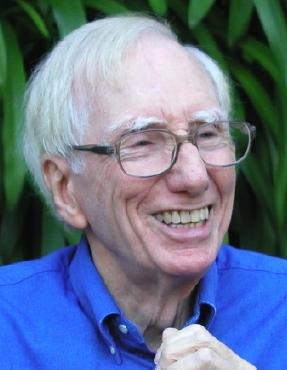 Robert Bellah is the Elliot Professor of Sociology Emeritus at the University of California, Berkeley, where he taught sociology of religion and was the director of the Center for Japanese and Korean Studies. Educated at Harvard University, where he taught for ten years, Bellah moved appointments to the University of California, Berkeley, in 1967 and served there until 1997. He has done cross-cultural work on religion in Japan and in American society. Bellah is best known for his seminal essays “Civil Religion in America” (1967) and “Religious Evolution” (1964), for which he is currently transforming into a two-volume work titled Religion in Human Evolution (the first volume is due out September 2011 by Harvard University Press). Bellah won the Sorokin Award from the American Sociological Association for Broken Covenant: American Civil Religion in a Time of Trial (1975; University of Chicago Press, 2nd ed., 1992) and the Los Angeles Times Book Prize for Habits of the Heart: Individualism and Commitment in American Life (University of California Press, 1985). His other publications include Tokugawa Religion: The Values of Pre-Industrial Japan (Free Press, 1957); Beyond Belief: Essays on Religion in a Post-Traditionalist World (Harper and Row, 1970); Emile Durkheim and Morality and Society (University of Chicago Press, 1973); The New Religious Consciousness (University of California Press, 1976); Varieties of Civil Religion (Harper, 1980); The Good Society (Knopf, 1991); Imagining Japan: The Japanese Tradition and Its Modern Interpretation (University of California Press, 2003); and most recently, The Robert Bellah Reader (Duke University Press, 2006). Besides being a prolific scholar, Bellah also won the Harbison Award for Gifted Teaching from the Danforth Foundation. In 2000, President Bill Clinton awarded Bellah the National Humanities Medal for raising “our awareness of the values that are at the core of democratic institutions and of the dangers of individualism unchecked by social responsibility.” Robert Bellah is the Elliot Professor of Sociology Emeritus at the University of California, Berkeley, where he taught sociology of religion and was the director of the Center for Japanese and Korean Studies. Educated at Harvard University, where he taught for ten years, Bellah moved appointments to the University of California, Berkeley, in 1967 and served there until 1997. He has done cross-cultural work on religion in Japan and in American society. Bellah is best known for his seminal essays “Civil Religion in America” (1967) and “Religious Evolution” (1964), for which he is currently transforming into a two-volume work titled Religion in Human Evolution (the first volume is due out September 2011 by Harvard University Press). Bellah won the Sorokin Award from the American Sociological Association for Broken Covenant: American Civil Religion in a Time of Trial (1975; University of Chicago Press, 2nd ed., 1992) and the Los Angeles Times Book Prize for Habits of the Heart: Individualism and Commitment in American Life (University of California Press, 1985). His other publications include Tokugawa Religion: The Values of Pre-Industrial Japan (Free Press, 1957); Beyond Belief: Essays on Religion in a Post-Traditionalist World (Harper and Row, 1970); Emile Durkheim and Morality and Society (University of Chicago Press, 1973); The New Religious Consciousness (University of California Press, 1976); Varieties of Civil Religion (Harper, 1980); The Good Society (Knopf, 1991); Imagining Japan: The Japanese Tradition and Its Modern Interpretation (University of California Press, 2003); and most recently, The Robert Bellah Reader (Duke University Press, 2006). Besides being a prolific scholar, Bellah also won the Harbison Award for Gifted Teaching from the Danforth Foundation. In 2000, President Bill Clinton awarded Bellah the National Humanities Medal for raising “our awareness of the values that are at the core of democratic institutions and of the dangers of individualism unchecked by social responsibility.”
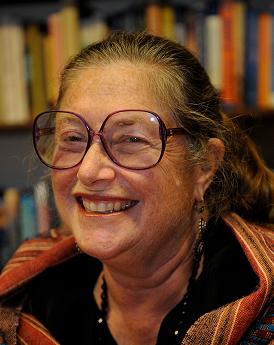 Wendy Doniger is a scholar whose eloquent analyses of the meaning of myths in culture have captivated scholars and the public alike. Doniger’s research and teaching interests revolve around two basic areas: Hinduism and mythology. Her courses in mythology address themes in cross-cultural expanses; her courses in Hinduism cover a broad spectrum that, in addition to mythology, considers literature, law, gender, and ecology. Doniger’s offerings have included courses about death, dreams, evil, horses, sex, and women. Doniger — one of the world’s foremost scholars of Hinduism — is a well-known author, editor, translator, teacher, blogger, lecturer, and commentator who is equally incisive whether she is discussing current movies or ancient civilizations. She has been widely praised for groundbreaking work that includes the books The Woman Who Pretended to Be Who She Was: Myths of Self-Imitation (Oxford University Press, 2004); The Implied Spider: Politics and Theology in Myth (Columbia University Press, 1998); and a new translation of the Kamasutra (Oxford University Press, 2nd ed., 2009). Her research includes literature, law, gender, and psychology. Doniger’s work has sometimes generated controversy; she has been occasionally assailed — literally, had an egg thrown at her — and threatened by people who accuse her of distorting Hinduism. Doniger is the Mircea Eliade Distinguished Service Professor of the History of Religions department at the University of Chicago Divinity School, where she has taught since 1978. She also teaches in the departments of South Asian Languages and Civilizations, among others. Wendy Doniger is a scholar whose eloquent analyses of the meaning of myths in culture have captivated scholars and the public alike. Doniger’s research and teaching interests revolve around two basic areas: Hinduism and mythology. Her courses in mythology address themes in cross-cultural expanses; her courses in Hinduism cover a broad spectrum that, in addition to mythology, considers literature, law, gender, and ecology. Doniger’s offerings have included courses about death, dreams, evil, horses, sex, and women. Doniger — one of the world’s foremost scholars of Hinduism — is a well-known author, editor, translator, teacher, blogger, lecturer, and commentator who is equally incisive whether she is discussing current movies or ancient civilizations. She has been widely praised for groundbreaking work that includes the books The Woman Who Pretended to Be Who She Was: Myths of Self-Imitation (Oxford University Press, 2004); The Implied Spider: Politics and Theology in Myth (Columbia University Press, 1998); and a new translation of the Kamasutra (Oxford University Press, 2nd ed., 2009). Her research includes literature, law, gender, and psychology. Doniger’s work has sometimes generated controversy; she has been occasionally assailed — literally, had an egg thrown at her — and threatened by people who accuse her of distorting Hinduism. Doniger is the Mircea Eliade Distinguished Service Professor of the History of Religions department at the University of Chicago Divinity School, where she has taught since 1978. She also teaches in the departments of South Asian Languages and Civilizations, among others.
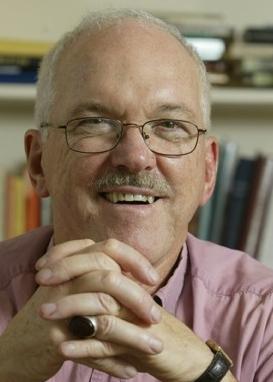 Bruce B. Lawrence is the Nancy and Jeffrey Marcus Humanities Professor of Religion at Duke University. Lawrence earned his doctorate at Yale University in history of religions. There he was trained to engage the Middle East and South Asia, with particular reference to the cultures, languages, history, and religious practices marked as Muslim. But Lawrence also concerns himself with the non-Muslim religious traditions of Asia, especially Hinduism, Buddhism, Sikhism, and Jainism at the same time that he pursues the turbulent reconnections of Europe to Asia forged in colonial and post-colonial encounters. Bruce B. Lawrence is the Nancy and Jeffrey Marcus Humanities Professor of Religion at Duke University. Lawrence earned his doctorate at Yale University in history of religions. There he was trained to engage the Middle East and South Asia, with particular reference to the cultures, languages, history, and religious practices marked as Muslim. But Lawrence also concerns himself with the non-Muslim religious traditions of Asia, especially Hinduism, Buddhism, Sikhism, and Jainism at the same time that he pursues the turbulent reconnections of Europe to Asia forged in colonial and post-colonial encounters.
Lawrence’s early books explored the intellectual and social history of Asian Muslims: Shahrastani on the Indian Religions (de Gruyter Press, 1976); Notes from a Distant Flute: The Extant Literature of Pre-Mughal Indian Sufism (Imperial Iranian University, 1978); The Rose and the Rock: Mystical and Rational Elements in the Intellectual History of South Asian Islam (Duke University Press,1979); and Ibn Khaldun and Islamic Ideology (Brill, 1984). Since the mid-1980s, he has been concerned with the interplay between religion and ideology. The test case of fundamentalism became the topic of his award-winning monograph Defenders of God: The Fundamentalist Revolt against the Modern Age (Harper and Row,1989). A parallel but more limited enquiry informed Lawrence’s latest monograph Shattering the Myth: Islam beyond Violence (Princeton University Press, 1998). It is the thorny issue of religious pluralism and diasporic communities that guide his monograph on Asian religions in America: New Faiths/Old Fears (Columbia University Press, 2002). This newest book concerns Asian religions in America especially since 1965, and examines the challenge of their spiritual practices to North American norms and values.
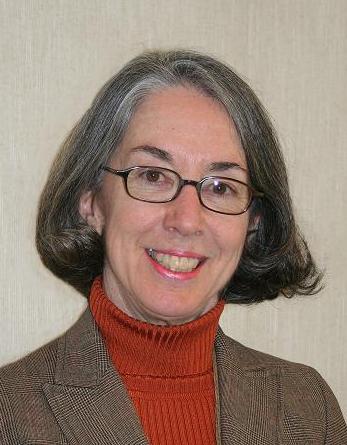 Caroline Walker Bynum studies the religious ideas and practices of the European Middle Ages from late antiquity to the sixteenth century. In the 1980s, her book Holy Feast and Holy Fast: The Religious Significance of Food to Medieval Women (University of California Press, 1988) was instrumental in introducing the concept of gender into Medieval studies. In the 1990s, her books Fragmentation and Redemption: Essays on Gender and the Human Body in Medieval Religion (Zone Books, 1990) and Resurrection of the Body in Western Christianity, 200-1336 (Columbia University Press, 1995) provided a paradigm for the history of the body. The essays “In Praise of Fragments” (in Fragmentation and Redemption) and “Wonder” (in Metamorphosis and Identity, Zone Books, 2001) are widely cited in discussions of historical method. Bynum’s recent work, in Wonderful Blood: Theology and Practice in Late Medieval Northern Germany and Beyond (University of Pennsylvania Press, 2006) and in her forthcoming Christian Materiality: An Essay on Religion in Late Medieval Europe (Zone Books, 2011), is a radical reinterpretation of the nature of Christianity on the eve of the reformations of the sixteenth century. Caroline Walker Bynum studies the religious ideas and practices of the European Middle Ages from late antiquity to the sixteenth century. In the 1980s, her book Holy Feast and Holy Fast: The Religious Significance of Food to Medieval Women (University of California Press, 1988) was instrumental in introducing the concept of gender into Medieval studies. In the 1990s, her books Fragmentation and Redemption: Essays on Gender and the Human Body in Medieval Religion (Zone Books, 1990) and Resurrection of the Body in Western Christianity, 200-1336 (Columbia University Press, 1995) provided a paradigm for the history of the body. The essays “In Praise of Fragments” (in Fragmentation and Redemption) and “Wonder” (in Metamorphosis and Identity, Zone Books, 2001) are widely cited in discussions of historical method. Bynum’s recent work, in Wonderful Blood: Theology and Practice in Late Medieval Northern Germany and Beyond (University of Pennsylvania Press, 2006) and in her forthcoming Christian Materiality: An Essay on Religion in Late Medieval Europe (Zone Books, 2011), is a radical reinterpretation of the nature of Christianity on the eve of the reformations of the sixteenth century.
Bynum is currently working on the role of objects in late Medieval religion, placing them in the context of contemporary theories of miracles and materiality. Increasingly cross-cultural in her interests, she is exploring the applicability of the term “relic” to shrine cults in religions other than Christianity and pursuing a comparison between the treatment of devotional statues in late Medieval Christianity and the ostensibly similar practices in the Hinduism of Medieval India.
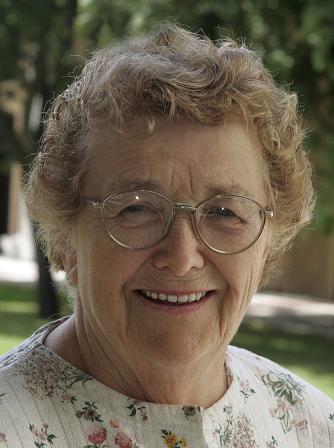 Rosemary Radford Ruether is the Carpenter Emerita Professor of Feminist Theology at Pacific School of Religion and the Graduate Theological Union, as well as the Georgia Harkness Emerita Professor of Applied Theology at Garrett Evangelical Theological Seminary. Ruether has enjoyed a long and distinguished career as a scholar, teacher, and activist in the Roman Catholic Church and is well known as a groundbreaking figure in Christian feminist theology. She has published numerous books, including Sexism and God-Talk: Toward a Feminist Theology (Beacon Press, 1983); In Our Own Voices: Four Centuries of American Women’s Religious Writing (ed. with Rosemary Skinner Keller, HarperCollins, 1995); and The Wrath of Jonah: The Crisis of Religious Nationalism in the Israeli-Palestinian Conflict (Fortress Press, 2002). Her most recent books include Goddesses and the Divine Feminine: A Western Religious History (University of California Press, 2005); Integrating Ecofeminism, Globalization, and World Religions (Rowman and Littlefield Publishers, Inc., 2005); and Mountain Sisters: From Convent to Community in Appalachia (University Press of Kentucky, 2003). Ruether also collaborated on a multivolume Encyclopedia of Women and Religion in North America (Indiana University Press, 2006) with Rosemary Skinner Keller, a project funded by the Lilly Endowment. Rosemary Radford Ruether is the Carpenter Emerita Professor of Feminist Theology at Pacific School of Religion and the Graduate Theological Union, as well as the Georgia Harkness Emerita Professor of Applied Theology at Garrett Evangelical Theological Seminary. Ruether has enjoyed a long and distinguished career as a scholar, teacher, and activist in the Roman Catholic Church and is well known as a groundbreaking figure in Christian feminist theology. She has published numerous books, including Sexism and God-Talk: Toward a Feminist Theology (Beacon Press, 1983); In Our Own Voices: Four Centuries of American Women’s Religious Writing (ed. with Rosemary Skinner Keller, HarperCollins, 1995); and The Wrath of Jonah: The Crisis of Religious Nationalism in the Israeli-Palestinian Conflict (Fortress Press, 2002). Her most recent books include Goddesses and the Divine Feminine: A Western Religious History (University of California Press, 2005); Integrating Ecofeminism, Globalization, and World Religions (Rowman and Littlefield Publishers, Inc., 2005); and Mountain Sisters: From Convent to Community in Appalachia (University Press of Kentucky, 2003). Ruether also collaborated on a multivolume Encyclopedia of Women and Religion in North America (Indiana University Press, 2006) with Rosemary Skinner Keller, a project funded by the Lilly Endowment.
Ruether has for thirty years been considered a pioneer in the area of feminist theology in North America, with a particular focus in modern feminist theology and liberation theology, especially in Palestine and Latin America. She has also been an outspoken critic of war since the Vietnam era and continues this work today. Ruether describes herself as an “ecofeminist” and has referred to God in the feminine as “Gaia” (however, she noted in July 2008 that a critic “accused me of teaching that ‘God is Gaia,’ a view which I do not take”). Ruether is an advocate of women’s ordination in the Roman Catholic Church. Since 1985 Ruether has served as a board member for the pro-choice rights group Catholics for Choice (CFC).
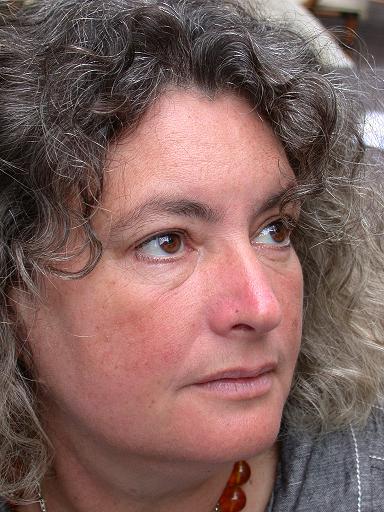 Starhawk is one of the most respected voices in modern earth-based spirituality. She is also well-known as a global justice activist and organizer, whose work and writings have inspired many to action. She is the author or coauthor of ten books, including The Spiral Dance: A Rebirth of the Ancient Religion of the Great Goddess (HarperOne, 20th ann. ed., 2009) — long considered the essential text for the Neo-Pagan movement — and the now-classic ecotopian novel The Fifth Sacred Thing (Bantam Press, 1993). Starhawk’s newest book is The Last Wild Witch (Mother Tongue Ink, 2009) — an ecofable for kids and adults alike and winner of a 2010 Nautilus Award. Starhawk is one of the most respected voices in modern earth-based spirituality. She is also well-known as a global justice activist and organizer, whose work and writings have inspired many to action. She is the author or coauthor of ten books, including The Spiral Dance: A Rebirth of the Ancient Religion of the Great Goddess (HarperOne, 20th ann. ed., 2009) — long considered the essential text for the Neo-Pagan movement — and the now-classic ecotopian novel The Fifth Sacred Thing (Bantam Press, 1993). Starhawk’s newest book is The Last Wild Witch (Mother Tongue Ink, 2009) — an ecofable for kids and adults alike and winner of a 2010 Nautilus Award.
Starhawk is perhaps best known as an articulate pioneer in the revival of earth-based spirituality and Goddess religion. She is a cofounder of Reclaiming, an activist branch of modern Pagan religion, and continues to work closely with the Reclaiming community. Starhawk is a veteran of progressive movements, from anti-war to anti-nuke, and is deeply committed to bringing the techniques and creative power of spirituality to political activism.
Donna Haraway is professor of feminism and technoscience at the European Graduate School. She is an internationally recognized feminist theorist and philosopher of science and technology. Her earliest educational experiences were formed in Catholic school in America. Haraway studied zoology, philosophy, and English at Colorado College on a Boettcher Foundation Scholarship, where she graduated with a BA in 1966. She then studied philosophies of evolution at the University of Paris on a Fulbright Scholarship for a year. Haraway received her PhD at Yale University in 1972 from the department of biology. Her dissertation, entitled “The Search for Organizing Relations: An Organismic Paradigm in Twentieth Century Developmental Biology” — which was written as part of an interdisciplinary arrangement between the departments of Biology, Philosophy, and History of Science and Medicine — focused on the role of metaphor as a shaping force in twentieth century developmental biological research. Since 1984, Haraway has been a professor in the History of Consciousness Program at the University of California, Santa Cruz.
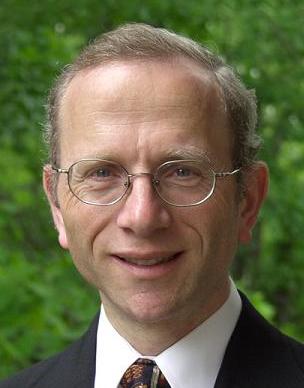 Jonathan D. Sarna is the Joseph H. and Belle R. Braun Professor of American Jewish History at Brandeis University and Chief Historian of the new National Museum of American Jewish History. Jonathan D. Sarna is the Joseph H. and Belle R. Braun Professor of American Jewish History at Brandeis University and Chief Historian of the new National Museum of American Jewish History.
Dubbed by the Forward newspaper in 2004 as one of America’s fifty most influential American Jews, he was Chief Historian for the 350th commemoration of the American Jewish community, and is recognized as a leading commentator on American Jewish history, religion, and life. In 2009, Sarna was elected to the American Academy of Arts and Sciences.
Sarna attended Brandeis University, Boston Hebrew College, Merkaz HaRav Kook in Jerusalem, and Yale University, where he obtained his doctorate in 1979. Sarna came back to Brandeis University in 1990 to teach American Jewish history in its department of Near Eastern and Judaic studies. He served two terms as Chair of that department and one term as Director of Brandeis University’s' Hornstein Jewish Professional Leadership Program. Sarna now Chairs the Academic Advisory and Editorial Board of the Jacob Rader Marcus Center of the American Jewish Archives in Cincinnati, Ohio.
Sarna has written, edited, or coedited more than twenty books, including the new Jews and the Civil War: A Reader (New York University Press, 2010) and A Time to Every Purpose: Letters to a Young Jew (Basic Books, 2008). He is best known for the acclaimed American Judaism: A History (Yale University Pres, 2004). Winner of the Jewish Book Council’s “Jewish Book of the Year Award” in 2004, American Judaism has been praised as being “the single best description of American Judaism during its 350 years on American soil.”
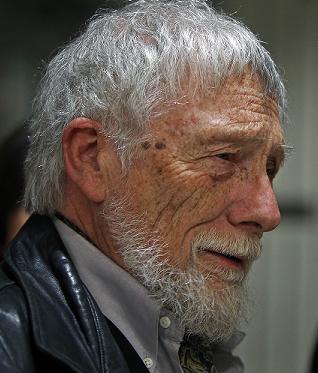 Gary Snyder is an American poet (often associated with the Beat Generation and the San Francisco Renaissance), as well as an essayist, lecturer, and environmental activist — frequently described as the “poet laureate of Deep Ecology.” Snyder is a winner of a Pulitzer Prize for poetry. His work, in his various roles, reflects an immersion in both Buddhist spirituality and nature. Snyder has translated literature into English from ancient Chinese and modern Japanese. For many years, he served as a faculty member at the University of California, Davis, and he also served for a time on the California Arts Council. Gary Snyder is an American poet (often associated with the Beat Generation and the San Francisco Renaissance), as well as an essayist, lecturer, and environmental activist — frequently described as the “poet laureate of Deep Ecology.” Snyder is a winner of a Pulitzer Prize for poetry. His work, in his various roles, reflects an immersion in both Buddhist spirituality and nature. Snyder has translated literature into English from ancient Chinese and modern Japanese. For many years, he served as a faculty member at the University of California, Davis, and he also served for a time on the California Arts Council.
Snyder has published eighteen books, which have been translated into more than twenty languages. He has been the subject of innumerable essays, five critical books, and has participated in countless international interviews. Snyder’s work and thinking has been featured in video specials on BBC-TV and PBS, and in every major national print organ.
|
![PDF-NOTE: Internet Explorer Users, right click the PDF Icon and choose [save target as] if you are experiencing problems with clicking.](http://rsnonline.org/templates/rsntemplate-smallmasthead/images/pdf_button.png)



 Abdul Karim Soroush is an Iranian thinker, philosopher, reformer, Rumi scholar, and former professor at the University of Tehran. He is a well-known figure in the religious intellectual movement in Iran. After the Revolution, Soroush returned to Iran and published his book Knowledge and Value — the writing of which he had completed in England. He then went to Tehran’s Teacher Training College, where he was appointed director of the newly established Islamic Culture Group. While in Tehran, Soroush established studies in both history and the philosophy of science. During the 1990s, Soroush gradually became more critical of the political role played by the Iranian clergy. The monthly magazine that he cofounded, Kiyan, soon became the most visible forum ever for religious intellectualism. In this magazine, he published his most controversial articles on religious pluralism, hermeneutics, tolerance, and clericalism. The government clamped down on the Kiyan staff in 1998 — as well as many other magazines and newspapers — by the direct order of the supreme leader of the Islamic Republic. Over the next year, Soroush lost his three senior academic appointments, including a deanship. He was forbidden from making public appearances and from publishing new articles. Since 2000, Soroush has lived in the United States and Europe and has taught at Harvard University, Princeton University, and Georgetown University.
Abdul Karim Soroush is an Iranian thinker, philosopher, reformer, Rumi scholar, and former professor at the University of Tehran. He is a well-known figure in the religious intellectual movement in Iran. After the Revolution, Soroush returned to Iran and published his book Knowledge and Value — the writing of which he had completed in England. He then went to Tehran’s Teacher Training College, where he was appointed director of the newly established Islamic Culture Group. While in Tehran, Soroush established studies in both history and the philosophy of science. During the 1990s, Soroush gradually became more critical of the political role played by the Iranian clergy. The monthly magazine that he cofounded, Kiyan, soon became the most visible forum ever for religious intellectualism. In this magazine, he published his most controversial articles on religious pluralism, hermeneutics, tolerance, and clericalism. The government clamped down on the Kiyan staff in 1998 — as well as many other magazines and newspapers — by the direct order of the supreme leader of the Islamic Republic. Over the next year, Soroush lost his three senior academic appointments, including a deanship. He was forbidden from making public appearances and from publishing new articles. Since 2000, Soroush has lived in the United States and Europe and has taught at Harvard University, Princeton University, and Georgetown University. Robert Bellah is the Elliot Professor of Sociology Emeritus at the University of California, Berkeley, where he taught sociology of religion and was the director of the Center for Japanese and Korean Studies. Educated at Harvard University, where he taught for ten years, Bellah moved appointments to the University of California, Berkeley, in 1967 and served there until 1997. He has done cross-cultural work on religion in Japan and in American society. Bellah is best known for his seminal essays “Civil Religion in America” (1967) and “Religious Evolution” (1964), for which he is currently transforming into a two-volume work titled Religion in Human Evolution (the first volume is due out September 2011 by Harvard University Press). Bellah won the Sorokin Award from the American Sociological Association for Broken Covenant: American Civil Religion in a Time of Trial (1975; University of Chicago Press, 2nd ed., 1992) and the Los Angeles Times Book Prize for Habits of the Heart: Individualism and Commitment in American Life (University of California Press, 1985). His other publications include Tokugawa Religion: The Values of Pre-Industrial Japan (Free Press, 1957); Beyond Belief: Essays on Religion in a Post-Traditionalist World (Harper and Row, 1970); Emile Durkheim and Morality and Society (University of Chicago Press, 1973); The New Religious Consciousness (University of California Press, 1976); Varieties of Civil Religion (Harper, 1980); The Good Society (Knopf, 1991); Imagining Japan: The Japanese Tradition and Its Modern Interpretation (University of California Press, 2003); and most recently, The Robert Bellah Reader (Duke University Press, 2006). Besides being a prolific scholar, Bellah also won the Harbison Award for Gifted Teaching from the Danforth Foundation. In 2000, President Bill Clinton awarded Bellah the National Humanities Medal for raising “our awareness of the values that are at the core of democratic institutions and of the dangers of individualism unchecked by social responsibility.”
Robert Bellah is the Elliot Professor of Sociology Emeritus at the University of California, Berkeley, where he taught sociology of religion and was the director of the Center for Japanese and Korean Studies. Educated at Harvard University, where he taught for ten years, Bellah moved appointments to the University of California, Berkeley, in 1967 and served there until 1997. He has done cross-cultural work on religion in Japan and in American society. Bellah is best known for his seminal essays “Civil Religion in America” (1967) and “Religious Evolution” (1964), for which he is currently transforming into a two-volume work titled Religion in Human Evolution (the first volume is due out September 2011 by Harvard University Press). Bellah won the Sorokin Award from the American Sociological Association for Broken Covenant: American Civil Religion in a Time of Trial (1975; University of Chicago Press, 2nd ed., 1992) and the Los Angeles Times Book Prize for Habits of the Heart: Individualism and Commitment in American Life (University of California Press, 1985). His other publications include Tokugawa Religion: The Values of Pre-Industrial Japan (Free Press, 1957); Beyond Belief: Essays on Religion in a Post-Traditionalist World (Harper and Row, 1970); Emile Durkheim and Morality and Society (University of Chicago Press, 1973); The New Religious Consciousness (University of California Press, 1976); Varieties of Civil Religion (Harper, 1980); The Good Society (Knopf, 1991); Imagining Japan: The Japanese Tradition and Its Modern Interpretation (University of California Press, 2003); and most recently, The Robert Bellah Reader (Duke University Press, 2006). Besides being a prolific scholar, Bellah also won the Harbison Award for Gifted Teaching from the Danforth Foundation. In 2000, President Bill Clinton awarded Bellah the National Humanities Medal for raising “our awareness of the values that are at the core of democratic institutions and of the dangers of individualism unchecked by social responsibility.” Wendy Doniger is a scholar whose eloquent analyses of the meaning of myths in culture have captivated scholars and the public alike. Doniger’s research and teaching interests revolve around two basic areas: Hinduism and mythology. Her courses in mythology address themes in cross-cultural expanses; her courses in Hinduism cover a broad spectrum that, in addition to mythology, considers literature, law, gender, and ecology. Doniger’s offerings have included courses about death, dreams, evil, horses, sex, and women. Doniger — one of the world’s foremost scholars of Hinduism — is a well-known author, editor, translator, teacher, blogger, lecturer, and commentator who is equally incisive whether she is discussing current movies or ancient civilizations. She has been widely praised for groundbreaking work that includes the books The Woman Who Pretended to Be Who She Was: Myths of Self-Imitation (Oxford University Press, 2004); The Implied Spider: Politics and Theology in Myth (Columbia University Press, 1998); and a new translation of the Kamasutra (Oxford University Press, 2nd ed., 2009). Her research includes literature, law, gender, and psychology. Doniger’s work has sometimes generated controversy; she has been occasionally assailed — literally, had an egg thrown at her — and threatened by people who accuse her of distorting Hinduism. Doniger is the Mircea Eliade Distinguished Service Professor of the History of Religions department at the University of Chicago Divinity School, where she has taught since 1978. She also teaches in the departments of South Asian Languages and Civilizations, among others.
Wendy Doniger is a scholar whose eloquent analyses of the meaning of myths in culture have captivated scholars and the public alike. Doniger’s research and teaching interests revolve around two basic areas: Hinduism and mythology. Her courses in mythology address themes in cross-cultural expanses; her courses in Hinduism cover a broad spectrum that, in addition to mythology, considers literature, law, gender, and ecology. Doniger’s offerings have included courses about death, dreams, evil, horses, sex, and women. Doniger — one of the world’s foremost scholars of Hinduism — is a well-known author, editor, translator, teacher, blogger, lecturer, and commentator who is equally incisive whether she is discussing current movies or ancient civilizations. She has been widely praised for groundbreaking work that includes the books The Woman Who Pretended to Be Who She Was: Myths of Self-Imitation (Oxford University Press, 2004); The Implied Spider: Politics and Theology in Myth (Columbia University Press, 1998); and a new translation of the Kamasutra (Oxford University Press, 2nd ed., 2009). Her research includes literature, law, gender, and psychology. Doniger’s work has sometimes generated controversy; she has been occasionally assailed — literally, had an egg thrown at her — and threatened by people who accuse her of distorting Hinduism. Doniger is the Mircea Eliade Distinguished Service Professor of the History of Religions department at the University of Chicago Divinity School, where she has taught since 1978. She also teaches in the departments of South Asian Languages and Civilizations, among others. Bruce B. Lawrence is the Nancy and Jeffrey Marcus Humanities Professor of Religion at Duke University. Lawrence earned his doctorate at Yale University in history of religions. There he was trained to engage the Middle East and South Asia, with particular reference to the cultures, languages, history, and religious practices marked as Muslim. But Lawrence also concerns himself with the non-Muslim religious traditions of Asia, especially Hinduism, Buddhism, Sikhism, and Jainism at the same time that he pursues the turbulent reconnections of Europe to Asia forged in colonial and post-colonial encounters.
Bruce B. Lawrence is the Nancy and Jeffrey Marcus Humanities Professor of Religion at Duke University. Lawrence earned his doctorate at Yale University in history of religions. There he was trained to engage the Middle East and South Asia, with particular reference to the cultures, languages, history, and religious practices marked as Muslim. But Lawrence also concerns himself with the non-Muslim religious traditions of Asia, especially Hinduism, Buddhism, Sikhism, and Jainism at the same time that he pursues the turbulent reconnections of Europe to Asia forged in colonial and post-colonial encounters. Caroline Walker Bynum studies the religious ideas and practices of the European Middle Ages from late antiquity to the sixteenth century. In the 1980s, her book Holy Feast and Holy Fast: The Religious Significance of Food to Medieval Women (University of California Press, 1988) was instrumental in introducing the concept of gender into Medieval studies. In the 1990s, her books Fragmentation and Redemption: Essays on Gender and the Human Body in Medieval Religion (Zone Books, 1990) and Resurrection of the Body in Western Christianity, 200-1336 (Columbia University Press, 1995) provided a paradigm for the history of the body. The essays “In Praise of Fragments” (in Fragmentation and Redemption) and “Wonder” (in Metamorphosis and Identity, Zone Books, 2001) are widely cited in discussions of historical method. Bynum’s recent work, in Wonderful Blood: Theology and Practice in Late Medieval Northern Germany and Beyond (University of Pennsylvania Press, 2006) and in her forthcoming Christian Materiality: An Essay on Religion in Late Medieval Europe (Zone Books, 2011), is a radical reinterpretation of the nature of Christianity on the eve of the reformations of the sixteenth century.
Caroline Walker Bynum studies the religious ideas and practices of the European Middle Ages from late antiquity to the sixteenth century. In the 1980s, her book Holy Feast and Holy Fast: The Religious Significance of Food to Medieval Women (University of California Press, 1988) was instrumental in introducing the concept of gender into Medieval studies. In the 1990s, her books Fragmentation and Redemption: Essays on Gender and the Human Body in Medieval Religion (Zone Books, 1990) and Resurrection of the Body in Western Christianity, 200-1336 (Columbia University Press, 1995) provided a paradigm for the history of the body. The essays “In Praise of Fragments” (in Fragmentation and Redemption) and “Wonder” (in Metamorphosis and Identity, Zone Books, 2001) are widely cited in discussions of historical method. Bynum’s recent work, in Wonderful Blood: Theology and Practice in Late Medieval Northern Germany and Beyond (University of Pennsylvania Press, 2006) and in her forthcoming Christian Materiality: An Essay on Religion in Late Medieval Europe (Zone Books, 2011), is a radical reinterpretation of the nature of Christianity on the eve of the reformations of the sixteenth century. Rosemary Radford Ruether is the Carpenter Emerita Professor of Feminist Theology at Pacific School of Religion and the Graduate Theological Union, as well as the Georgia Harkness Emerita Professor of Applied Theology at Garrett Evangelical Theological Seminary. Ruether has enjoyed a long and distinguished career as a scholar, teacher, and activist in the Roman Catholic Church and is well known as a groundbreaking figure in Christian feminist theology. She has published numerous books, including Sexism and God-Talk: Toward a Feminist Theology (Beacon Press, 1983); In Our Own Voices: Four Centuries of American Women’s Religious Writing (ed. with Rosemary Skinner Keller, HarperCollins, 1995); and The Wrath of Jonah: The Crisis of Religious Nationalism in the Israeli-Palestinian Conflict (Fortress Press, 2002). Her most recent books include Goddesses and the Divine Feminine: A Western Religious History (University of California Press, 2005); Integrating Ecofeminism, Globalization, and World Religions (Rowman and Littlefield Publishers, Inc., 2005); and Mountain Sisters: From Convent to Community in Appalachia (University Press of Kentucky, 2003). Ruether also collaborated on a multivolume Encyclopedia of Women and Religion in North America (Indiana University Press, 2006) with Rosemary Skinner Keller, a project funded by the Lilly Endowment.
Rosemary Radford Ruether is the Carpenter Emerita Professor of Feminist Theology at Pacific School of Religion and the Graduate Theological Union, as well as the Georgia Harkness Emerita Professor of Applied Theology at Garrett Evangelical Theological Seminary. Ruether has enjoyed a long and distinguished career as a scholar, teacher, and activist in the Roman Catholic Church and is well known as a groundbreaking figure in Christian feminist theology. She has published numerous books, including Sexism and God-Talk: Toward a Feminist Theology (Beacon Press, 1983); In Our Own Voices: Four Centuries of American Women’s Religious Writing (ed. with Rosemary Skinner Keller, HarperCollins, 1995); and The Wrath of Jonah: The Crisis of Religious Nationalism in the Israeli-Palestinian Conflict (Fortress Press, 2002). Her most recent books include Goddesses and the Divine Feminine: A Western Religious History (University of California Press, 2005); Integrating Ecofeminism, Globalization, and World Religions (Rowman and Littlefield Publishers, Inc., 2005); and Mountain Sisters: From Convent to Community in Appalachia (University Press of Kentucky, 2003). Ruether also collaborated on a multivolume Encyclopedia of Women and Religion in North America (Indiana University Press, 2006) with Rosemary Skinner Keller, a project funded by the Lilly Endowment. Starhawk is one of the most respected voices in modern earth-based spirituality. She is also well-known as a global justice activist and organizer, whose work and writings have inspired many to action. She is the author or coauthor of ten books, including The Spiral Dance: A Rebirth of the Ancient Religion of the Great Goddess (HarperOne, 20th ann. ed., 2009) — long considered the essential text for the Neo-Pagan movement — and the now-classic ecotopian novel The Fifth Sacred Thing (Bantam Press, 1993). Starhawk’s newest book is The Last Wild Witch (Mother Tongue Ink, 2009) — an ecofable for kids and adults alike and winner of a 2010 Nautilus Award.
Starhawk is one of the most respected voices in modern earth-based spirituality. She is also well-known as a global justice activist and organizer, whose work and writings have inspired many to action. She is the author or coauthor of ten books, including The Spiral Dance: A Rebirth of the Ancient Religion of the Great Goddess (HarperOne, 20th ann. ed., 2009) — long considered the essential text for the Neo-Pagan movement — and the now-classic ecotopian novel The Fifth Sacred Thing (Bantam Press, 1993). Starhawk’s newest book is The Last Wild Witch (Mother Tongue Ink, 2009) — an ecofable for kids and adults alike and winner of a 2010 Nautilus Award. Jonathan D. Sarna is the Joseph H. and Belle R. Braun Professor of American Jewish History at Brandeis University and Chief Historian of the new National Museum of American Jewish History.
Jonathan D. Sarna is the Joseph H. and Belle R. Braun Professor of American Jewish History at Brandeis University and Chief Historian of the new National Museum of American Jewish History. Gary Snyder is an American poet (often associated with the Beat Generation and the San Francisco Renaissance), as well as an essayist, lecturer, and environmental activist — frequently described as the “poet laureate of Deep Ecology.” Snyder is a winner of a Pulitzer Prize for poetry. His work, in his various roles, reflects an immersion in both Buddhist spirituality and nature. Snyder has translated literature into English from ancient Chinese and modern Japanese. For many years, he served as a faculty member at the University of California, Davis, and he also served for a time on the California Arts Council.
Gary Snyder is an American poet (often associated with the Beat Generation and the San Francisco Renaissance), as well as an essayist, lecturer, and environmental activist — frequently described as the “poet laureate of Deep Ecology.” Snyder is a winner of a Pulitzer Prize for poetry. His work, in his various roles, reflects an immersion in both Buddhist spirituality and nature. Snyder has translated literature into English from ancient Chinese and modern Japanese. For many years, he served as a faculty member at the University of California, Davis, and he also served for a time on the California Arts Council.